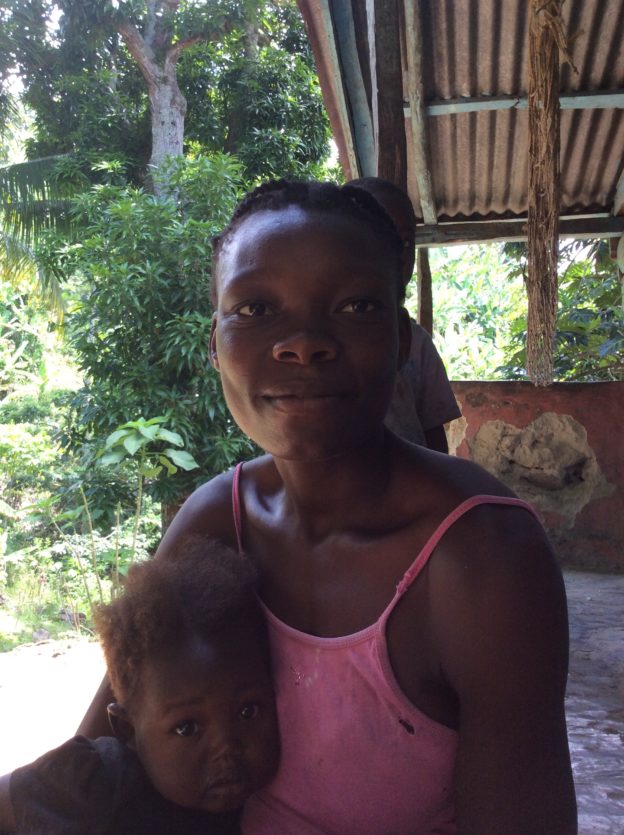Modeline seems like a very young woman, but she doesn’t know her age. She was born in Kwafè, an important market community northeast of Savanèt, along the main road from Mibalè to the Dominican border. Her mother was driven away from Kwafè because of a conflict with her father and his family. Though her siblings eventually returned to their father, Modeline decided to stay with her mother and stepfather in Kaprens.
Her memories of her earliest years in Kwafè are fond ones. She says that she,her parents, and her siblings lived well. But then her father’s family burned their house down and her mother and siblings were left homeless. She speaks with gratitude of her stepfather. “He took us all in off the street. We were sick. But he’s always fought to put food in our mouths.”
When she had her child, she and her partner moved into a neighbor’s unused house. The neighbor let them live there for free until he decided to sell the house and the land it was on, and the couple had to look for another place to live. They found another neighbor, who had a small house lower down the hill. It is in very bad disrepair. It lacks doors, and the walls of the front porch are starting to fall, but it gives them a place to stay.
They live on food that she asks wealthier neighbors to give her and on whatever her partner can earn working in nearby fields. And she babysits for her mother, who now has young children, and the older women will send them to Modeline’s house with ingredients for meals she can prepare.
Most of the new program members from Kaprens have already received their goats, but Modeline is still waiting for hers. She’s frustrated and says that other women make fun of her because she doesn’t have them yet. Her hopes are bound up with the goats. “You keep a close eye on your goats and you manage them well, and they are the ticket to your future.”
